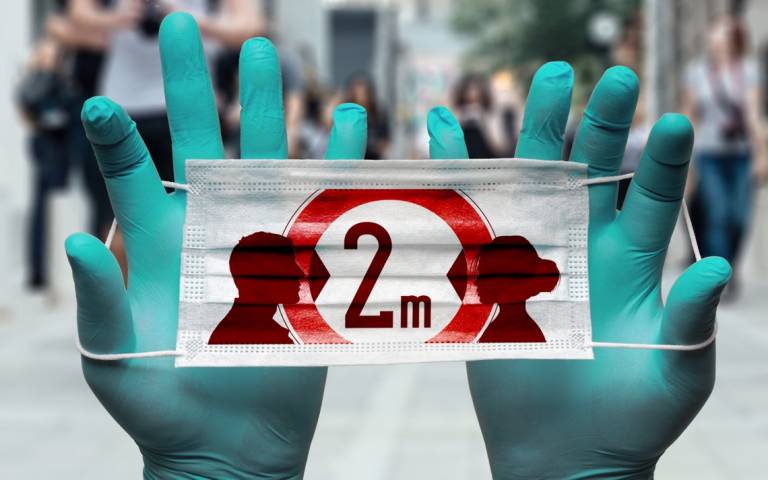Capturing public perceptions of COVID-19 to inform recovery and emergency planning
22 May 2020
A new European-wide study to understand the perceptions, needs and priorities of the public affected by the Coronavirus (COVID-19) emergency has been launched by a team from UCL and the European Commission's Joint Research Centre in Italy.

The findings will be important for delivering the information and services the public need to recover from the first wave of COVID-19 and properly prepare for a potential second wave.
By asking questions about what the public perceive their needs and expectations to be, especially in relation to the interruption of essential services, the team hope to identify knowledge gaps in the emergency response to COVID-19 and provide practical, evidence-based guidance to policy-makers to mitigate further impacts on society and the economy.
Dr Gianluca Pescaroli (UCL Institute for Risk & Disaster Reduction), who led the proposal, said: “It’s a scary thought but COVID-19 is far from being over. There is still a recovery phase to implement and a possible second wave of infection to mitigate. Now more than ever, we need to support important policy decisions with what is really a priority for society and the economy. This involves learning from actions already taken, how these have affected individuals and what is needed to prepare for future emergencies.”
The findings of the survey – called ‘COVID-19: Emergency, Recovery and Improvement’ –will feed into a longer-term vision to address the vulnerabilities highlighted during the COVID-19 pandemic and better prepare our communities for other possible complex crises. These could be emergencies associated with climate extremes such as heatwaves or flooding, natural hazards such as extreme space weather events, technological disruptions such as blackouts, and malicious acts such as cyber or hybrid attacks.
Professor David Alexander (UCL Institute for Risk & Disaster Reduction), said: “There is more to the coronavirus crisis than flattening the curve and although the measures to contain the virus are relatively simple, they are laden with consequences for society and individuals. By identifying what these effects are directly from the public, we, as emergency planners, can find ways to mitigate them and anticipate the issues of future waves.
“We hope that our survey will provide much-needed information on the ripple effects caused by coronavirus, and provide a clear steer on the recovery process, particularly the actions governments should take to help society and the economy to recover.”
The 10-minute questionnaire can be completed on a voluntary and anonymous basis, by those who were over 18 years old at the start of the national emergency lockdown measures. The information, collected anonymously, will only be used for statistical and non-profit research purposes, and the data will not be shared with anyone outside of the study.
The aggregated results will be published in publicly accessible guidelines to inform decision-making at all levels – from the individual to governments – as well as in academic literature on the areas of disaster risk reduction, organisational resilience and business continuity.
To take part, please visit: https://bit.ly/2xYmuwm
Links
- Dr Gianluca Pescaroli's academic profile
- Professor David Alexander's academic profile
- UCL Institute for Risk & Disaster Reduction
- UCL Mathematical & Physical Sciences
- COVID-19: Emergency, Recovery and Improvement
Image
- Coronavirus face mask, credit: Gerd Altmann, source: Pixabay
Media contact
Bex Caygill
Tel: +44 (0)20 3108 3846
Email: r.caygill [at] ucl.ac.uk
 Close
Close

